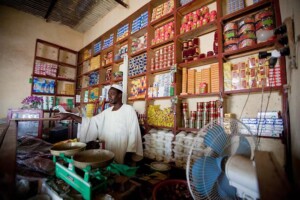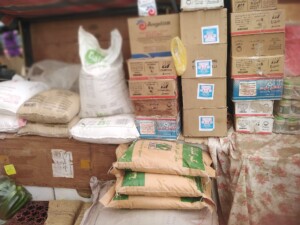Sudanese Company for Mineral Resources provides $45 mln gold revenue
The Sudanese Company for Mineral Resources announced on Sunday it has provided the state treasury with more than 45 million dollars in ten days, an unprecedented amount.
 Gold miners in Jebel 'Amer, North Darfur (file photo)
Gold miners in Jebel 'Amer, North Darfur (file photo)
The Sudanese Company for Mineral Resources announced on Sunday that it provided the state treasury with more than 45 million dollars in ten days, an unprecedented amount.
The company said in a press statement that it was able to procure roughly 100,200 kilograms of gold from the traditional stock exchange in the Gold Building in Khartoum.
The office of the Sudanese Company for Mineral Resources stated that 75 percent of this quantity is for export purposes (900 kilos), while 25 percent goes to the production of jewellery in the country.
The procuring of the gold from the stock market took ten working days, an unprecedented pace in Sudan’s gold market.
The company expected that the amount of gold prepared for exports would supplement the state treasury with more than $45 million and that with the increased pace of procuring gold the export earnings could increase by up to $100 million in the future, which would benefit the country and the people.
Gold mining in Sudan
The current amount of gold prepared for export is unprecedentedly high as the company procured more gold in ten days than is usually exported by the country in one year.
At the moment, Sudan contributes roughly 90 tonnes of gold to the global market per year, making it the tenth largest gold producer in the world. Most of this gold is mined in the Hassai Gold Mine in Red Sea state, where iron ore and other base metals are also mined.
Gold can also be found in North and South Kordofan, Darfur, Northern Sudan, River Nile state, and other places along the Nile River and Blue Nile River. Other mineral reserves in the country include chromite, gypsum, phosphates, zinc, lead, nickel, aluminium, and cobalt.
Last month, the Ministry of Minerals signed three new agreements with national and foreign companies to explore possibilities for the mining of gold and other precious minerals in Sudan’s Northern State.
The ministry signed agreements with Opal Mining, which is a foreign company operating in Turkey, Qatar, and Dubai, the Chinese company Jaina Hainan Mining, and the Sudanese company Kreber.
The minister explained that the new agreements were put in place to enhance the use of the precious metal in the country.
Stiffer control
Gold export is important for Sudan’s economy. In an interview with Radio Dabanga’s Sudan Today programme last month, Professor of Economics at El Nilein University in Khartoum Dr Hasan Bashir explained that export volumes could have been 10 times the size of current exports and highlighted the continued smuggling of large quantities of gold from the country.
Sudan is the second largest gold producer in Africa. The production however is often driven by unregulated, artisanal (individual subsistence) mining, and routine gold smuggling across international borders is a constant problem. Estimates are that between 50 per cent and 80 per cent of Sudan’s gold is smuggled out of the country. It is also known that proceeds have been used to finance the internal conflict.
To combat this problem, the Central Bank of Sudan announced stiffer control measures in March this year.











 and then
and then